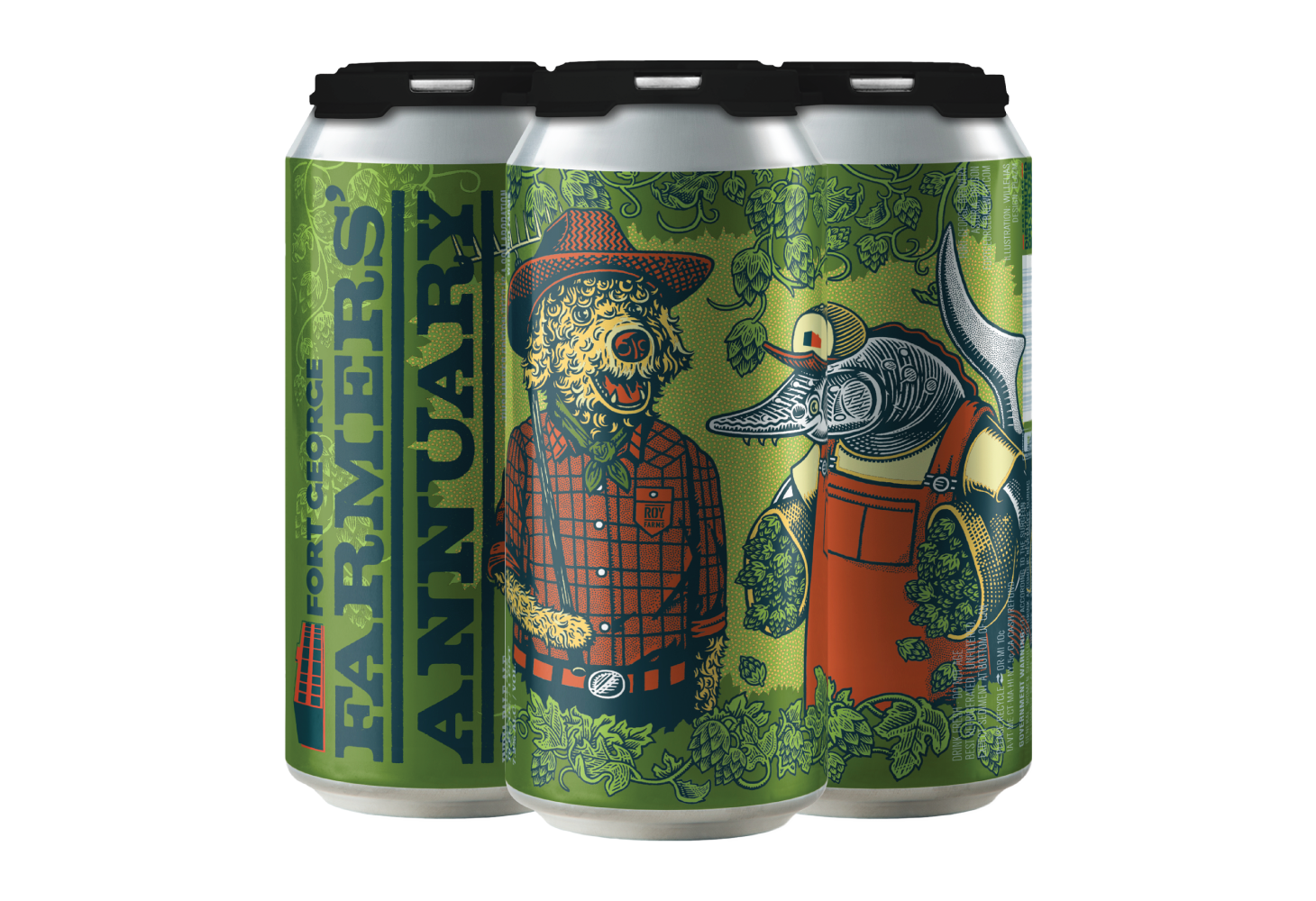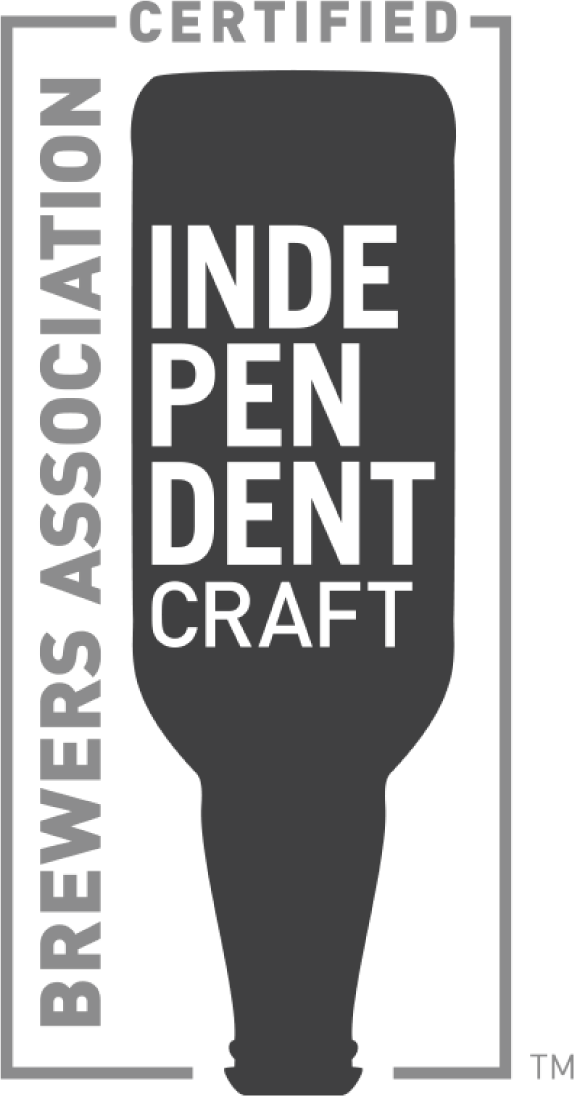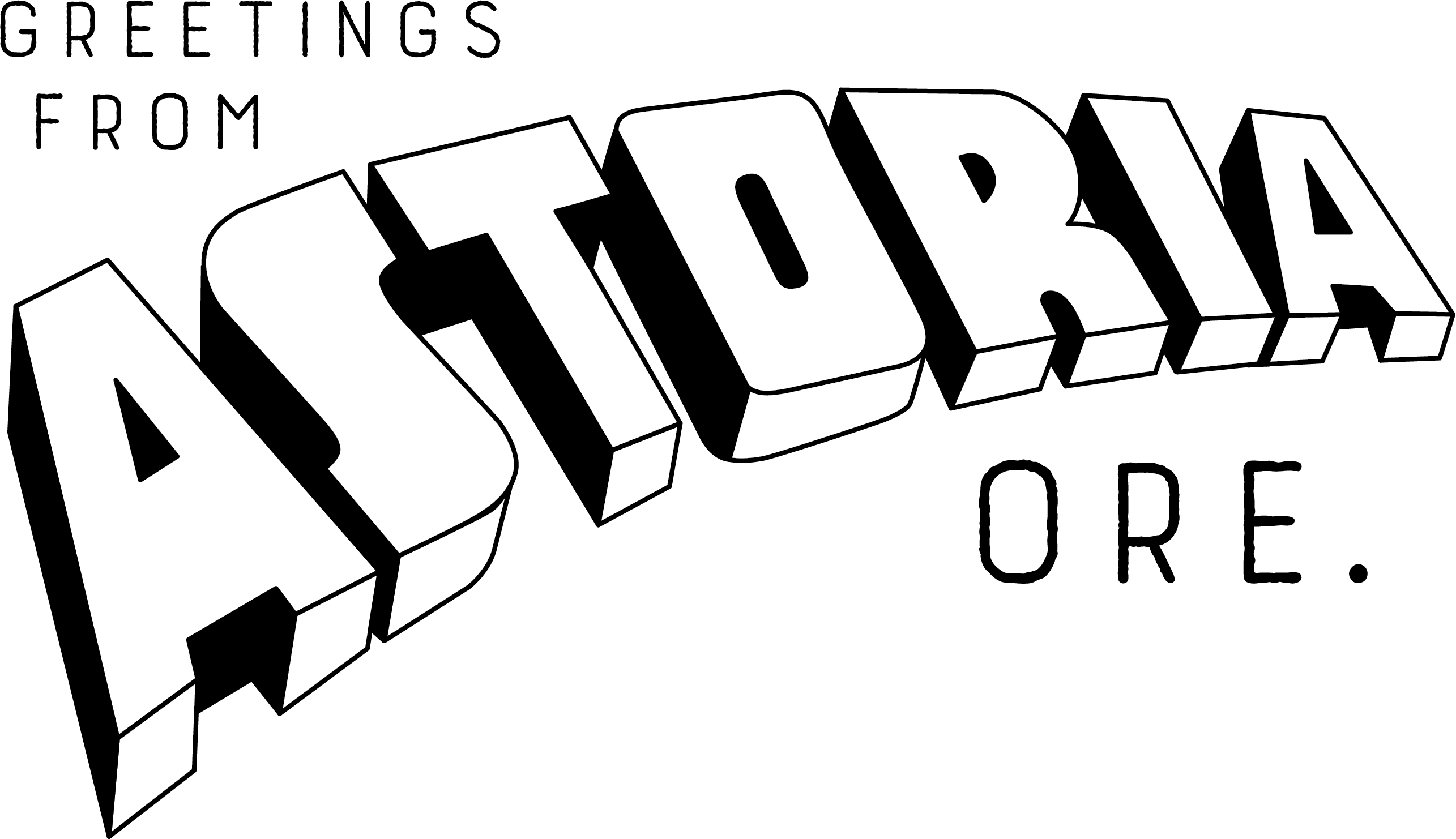Earlier this fall we made Farmers Annuary – a seasonal IPA brewed in collaboration with one of our purveyors. This year, we partnered with the passionate and knowledgeable folks at Roy Farms of Moxee, WA to brew an IPA with Azacca, Chinook, Columbus, and Bravo Hops straight from their farm.

Roy Farms’ multi-generational commitment to sustainability and ethical farming techniques means they produce some of the best hops in the world while ensuring the glorious Hopland of central Washington can keep producing industry-leading hops for the next hundred years. We recently caught up with Michal Frankowicz, Head Brewer at Fort George, and Andy and Michael Roy for a chat about this year’s Farmers’ Annuary.
What were you hoping to get out of Farmers’ Annuary, and do you think you accomplished it?
Michal Frankowicz: When we set out to make this beer, messing around with Bravo hops was a big intrigue to me. Bravo is starting to make a comeback and taste a lot better than it has in the past. Getting those notes of berry, wheat, herbs, and high pine aromas was really fun and turned out well.
Michael Roy: Yea, Bravo is one of those varieties that is bred to be a high alpha variety, so we find that the earlier you harvest it, the more aromatics you get which is really desirable for brewers. We will typically harvest Bravo hops early to mid-September.
You guys are Managing Partners of the ADHA Hop Program, can you tell us more about it?
Andy Roy: The ADHA (Association for the Development of Hop Agronomy) is a joint breeding program between us, Wyckoff Farms, and Green Acres Farms. Roy Farms is the managing partner of the program, with all test plots and resources located on our farm. What started out as a venture into the development of dwarf hop varieties at first for low trellis production and later standard trellis cultivation has evolved into an effort to breed for durable good agronomy, disease resistance, unique aroma, and broad adaptation to different growing regions.
Michael Roy: We have a huge interest in research and development. I meant, it’s just in our DNA to always be progressing and doing better but it is really hard to carry out any R&D during harvest. We’re moving about 120 acres a day of production so that volume at that speed is massive and our systems aren’t really geared towards doing small batches. Luckily, we’ve been able to make a ton of progress in that area because of the ADHA Breeding Program. We now have an experimental harvester on site that we can run out all of our R&D projects through making the process much easier.
What are some hops that have come out of the ADHA program?
MR: The breeding program has produced hops like Summit, Pico, Adeena, Azacca, and more but we are always continuing to look for other varieties. Azacca was one of the earlier varieties that came out of the ADHA and was something we noticed had a lot of potential early on. At the time of its inception, we had slowly started getting it out to some of our partners and it took a few years for people to figure out how to best use that hop. We call it a ‘wingman’ hop – it helps elevate the core hop varieties while it kinda shines in the background.
Why is Sustainable Farming important to you?
AR: Being a mindful hop grower is important to us and sustainability is really the soul of our brand. Softer farming practices, rigorous safety programs, advanced technology, and renewable energy are embraced by everyone at Roy Farms. We aim to apply sustainability practices to all areas of our business and encourage our partners to do the same. Some of our efforts include the ADHA program, Salmon-Safe farming practices, and Harvest Fresh Pellets.
Your farm is certified Salmon-Safe. What does that mean?
AR: : Being a Salmon-Safe Farm means we actively work to transform our land management practices by reducing and/or eliminating many fertilizers, pesticides, and other crop applicants to ensure we reduce potential watershed impacts. Basically, it takes a typical growers’ war chest of chemicals to be used in the field and greatly reduces it to minimize any potential runoff that could affect aquatic wildlife. Sustainable farming is and always has been one of our top priorities.
What are Harvest Fresh Pellets™ and what are some of their key benefits?
MR: In our efforts to maximize the quality, flavor, and aromas of our hops, we began producing Harvest Fresh Pellets™. This process maximizes freshness by taking fresh-picked hops to a packed pellet within 36-48 hours, in addition to being much more environmentally friendly. Going directly from Cooling Floor to pellet ensures the brewer gets the freshest pellets and maintains the field aromatics/oils, and does not degrade or oxidize in a bale waiting to be pelletized at a later date. Hops can oxidize and begin to lose their desirable aromatics and oils over time. In addition, Harvest Fresh Pellets™ greatly reduces our carbon footprint by not wasting poly-wrap to create the bales, loading the bales onto trucks with forklifts, driving loaded trucks into town to be unloaded, and using excess energy being stored in warehouses while waiting to be pelletized.”
Roy Farms has been operating for over 100 years. What do you credit your longevity to?
AR: Sustainability, creativity, diversification, and innovation is really what drives us. Our system is very brewer-driven and varieties get advanced through the system based on the breweries’ feedback because they’re the customers here. We want you guys, the brewers, to pull the hops into the market rather than us pushing them in there. As the industry shifts, so do our breeding and growth objectives.

It’s an exciting opportunity to source an entire hop bill from one grower, and Roy Farms farm forward, sustainable practices are just one of the reasons we partnered with them. Together, our teams came up with a hop bill that fits the classic West Coast style with a few tricks that might make you think it’s a New England IPA. When asked what they thought of the beer, Michael Roy says it has earned a “hefty thumbs up.”




